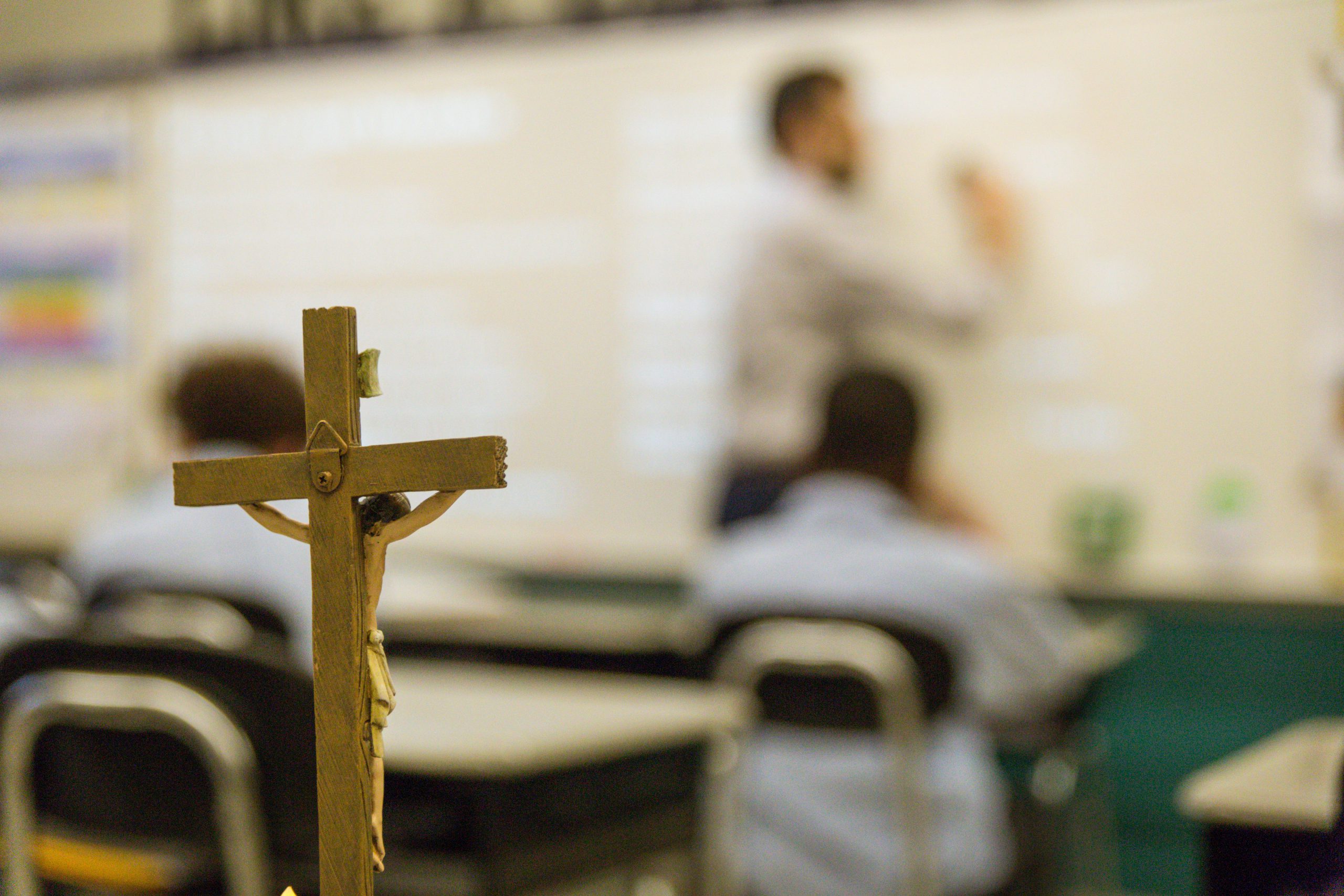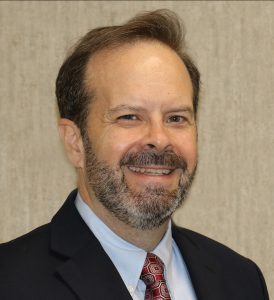
By Michael Pauley
A national survey commissioned by EWTN last year asked Catholic parents with children in public schools, “Have you considered moving your children to a private or parochial school because of concerns about the quality of education?” Nearly half of parents (46.6 percent) responded in the affirmative.
The survey doesn’t provide a comprehensive answer for why parents feel this way, but it does offer some clues. For example, more than 75 percent of respondents said they were opposed to allowing “biological boys who identify as girls” from competing against biological girls on school sports teams. Sixty percent said they were opposed to teaching “Critical Race Theory” in the classroom. Nearly 74 percent were concerned about the effects of the “COVID deficit” that has resulted in lost intellectual and social development among children. Over 64 percent felt that parents of K-12 students should help determine what is being taught in schools.
Public schools have become battlefields in the various cultural controversies of our age, causing many parents to look for educational alternatives that are both academically rigorous and more likely to cultivate virtuous character traits in their children.
Public schools nationwide lost more than 1.2 million students during the first two academic years under the COVID-19 pandemic, according to a recent study by the Urban Institute. Yet, the same study found private school enrollment increased by 4 percent in the 2021-2022 school year and homeschool enrollment increased by an astonishing 30 percent.
These trends are also reflected in Catholic schools. Following many years of steady decline, Catholic school enrollment nationwide increased by 3.7 percent in the 2021-2022 school year, followed by a 0.3 percent increase in 2022-2023, according to the National Catholic Education Association.
Despite these positive trends, it remains the case that many parents are unable to choose the education that best meets their children’s needs because of financial barriers. Private school tuition is a significant expense, and homeschooling typically requires at least one parent to forego income-earning opportunities to allow time for instruction.
The Church teaches that parents have a right to educational choice, and the state has an obligation to assist them in exercising that right. The Catechism of the Catholic Church (CCC) states:
“As those first responsible for the education of their children, parents have the right to choose a school for them which corresponds to their own convictions. This right is fundamental. As far as possible parents have the duty of choosing schools that will best help them in their task as Christian educators. Public authorities have the duty of guaranteeing this parental right and of ensuring the concrete conditions for its exercise.”
(CCC 2229)
The Second Vatican Council’s “Declaration on Christian Education” (Gravissimum Educationis) likewise calls for government educational subsidies to be administered in a way that protects the choices of parents:
“Parents who have the primary and inalienable right and duty to educate their children must enjoy true liberty in their choice of schools. Consequently, the public power, which has the obligation to protect and defend the rights of citizens, must see to it … that public subsidies are paid out in such a way that parents are truly free to choose according to their conscience the schools they want for their children.” (par. 20)

In recent years there has been encouraging progress in the movement to advance parental choice in education. According to the advocacy group EdChoice, there are now 78 educational choice programs in effect in 32 states. Eight states have enacted choice programs that are “universal” or “near-universal,” meaning that nearly all students in the state will qualify to participate, instead of limiting participation based on income level or other criteria.
South Dakota has a limited educational choice program: the South Dakota Partners in Education Tax Credit Program. Under the law, insurance companies who donate to South Dakota Partners in Education are eligible for a tax credit, and the funds contributed are used to provide private school scholarships for students from families who qualify based on income. In the most recent school year, just over 1,500 students from 48 different private schools received scholarships. The average scholarship value was $1,970. Although this program has greatly benefited many families, there is an overall cap on the tax credits of $3.5 million, which significantly limits both the number of students who can participate, and the amount of tuition assistance that can be provided to each student.
In 2023, South Dakota legislators considered, but did not pass, legislation that would expand parental choice in education. With the growing popularity of these programs across the country, it’s a virtual certainty this matter will come back before the South Dakota Legislature in 2024. Stay informed on these new developments by signing up for the South Dakota Catholic Conference email list at www.sdcatholicconference.org/sign-up/.


